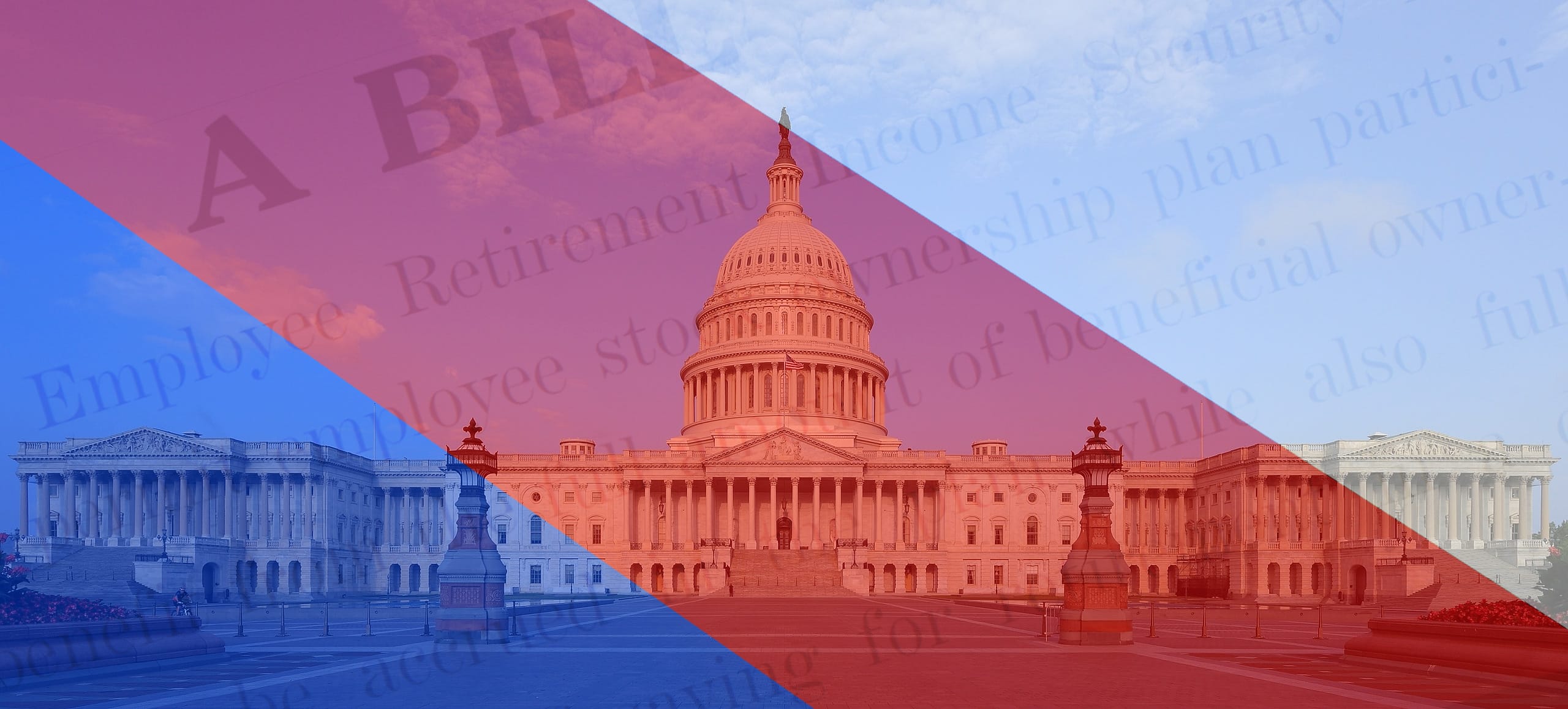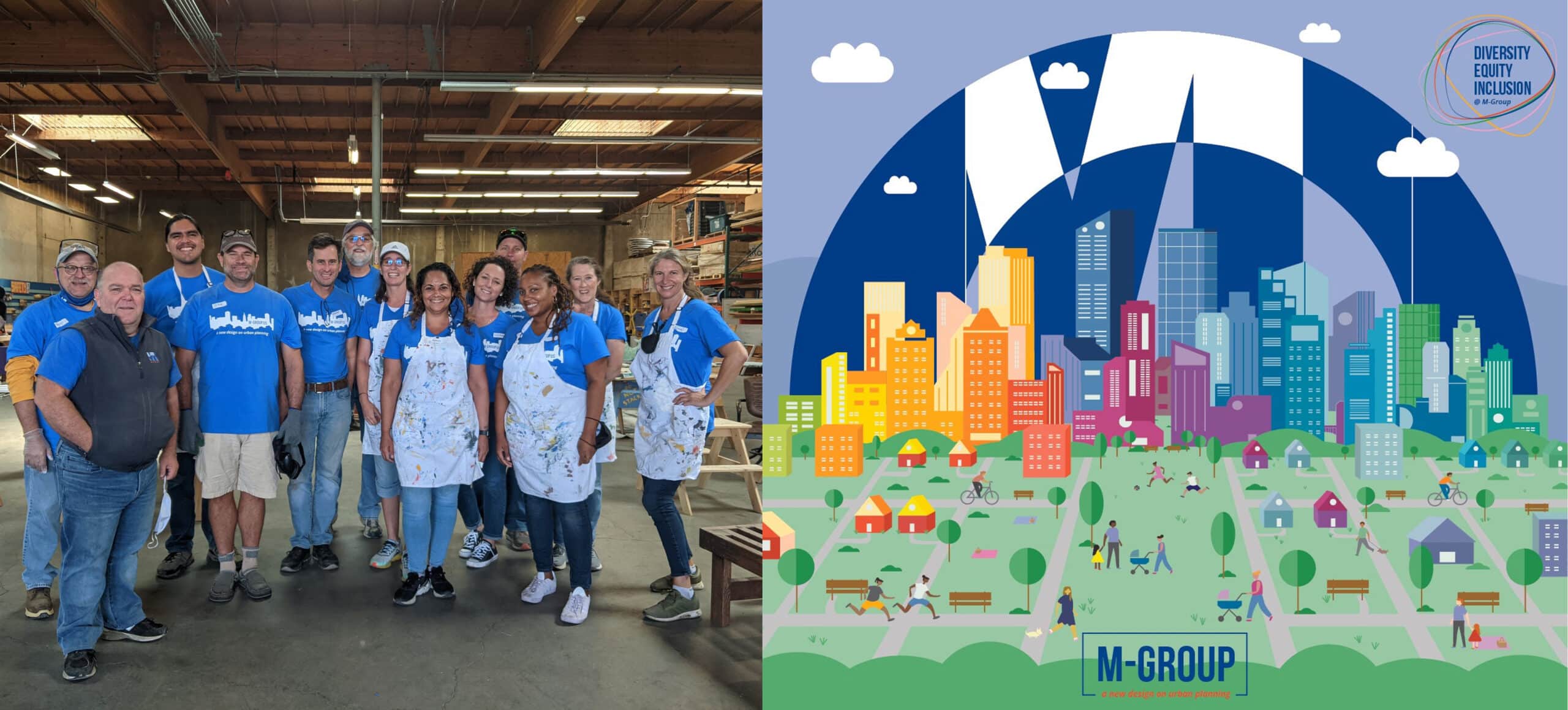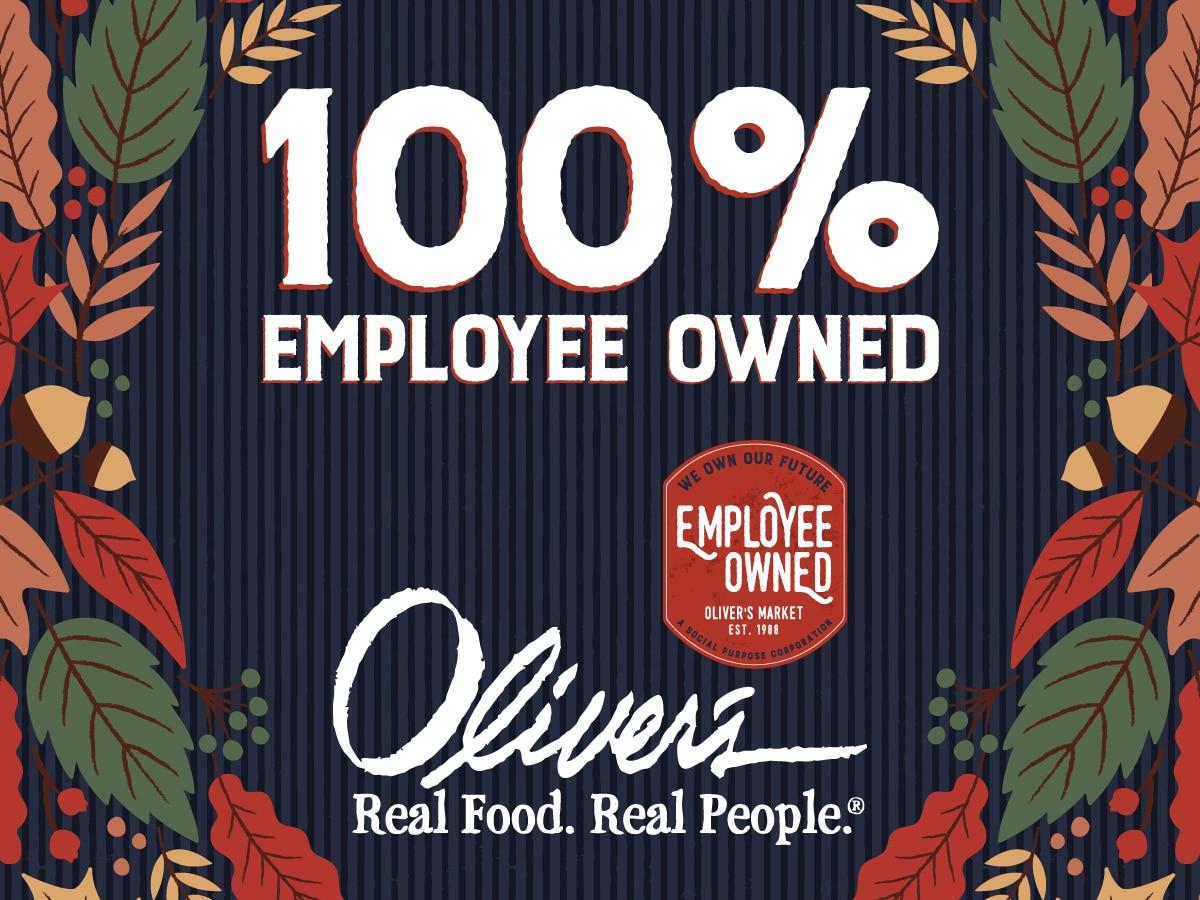Big news is brewing in Washington that could reshape the landscape for ESOP-owned companies

What's Changing?
Under current tax rules, plan contribution limits sometimes make it difficult for companies to contribute enough money to pay back an ESOP loan over a reasonable number of years. In addition, under current tax rules participant allocation limits apply to the total allocations that participants can receive if they participate both in an ESOP and in a 401(k) plan. These limits often mean that:
- ESOP loan cannot be repaid over a reasonable number of years
- Participants can’t make the full 401(k) deferral they’d like.
- Companies are forced to cut back or withhold their 401(k) matching contributions.
- Employees are penalized simply for being successful.
The new bill fixes that.
Here’s how:
- Stock contributions and ESOP loan repayments won’t count toward the annual contribution limits under IRC § 404.
- Stock contributions, ESOP loan repayments, and participant forfeitures won’t count toward the annual allocation limits under IRC § 415.
- Annual contribution caps will be applied separately to the ESOP and to other defined contribution plans (like a 401(k)).
In short, these rules let employees keep building retirement savings in both plans—no more choosing one benefit over another.
Why This Is a Big Win
This change benefits everyone involved in the ESOP ecosystem:
ESOP Companies
- Can offer richer, more flexible retirement benefits.
- Avoid the headache of testing failures and contribution restrictions.
- Attract and retain talent with competitive, dual-plan retirement packages.
Selling Shareholders
- More viable ESOP buyers = more deal opportunities.
- No risk of having to scale down the ESOP for technical limits.
Employee Participants
- Max out both their ESOP and 401(k) benefits.
- Diversify their savings while sharing in company success.
- Avoid losing out on employer matches.
A Common-Sense Correction
This legislation isn’t about expanding ESOP incentives—it’s about removing artificial roadblocks. These limits weren’t designed with employee ownership in mind, and they’ve long made it harder for companies to offer full benefits to workers who help drive their success.
By fixing this, the Employee Ownership Fairness Act finally brings the tax code into alignment with the modern ESOP model—and that’s a win for ownership, retirement, and shared prosperity.






